Iran To Draw 50-Year Roadmap For Nuclear Program
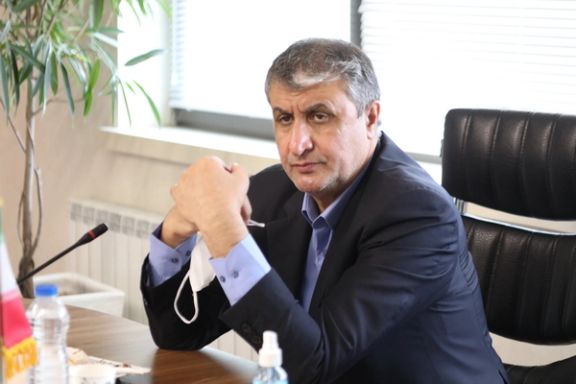
Iran’s atomic chief says members of parliament are seeking to legislate a 50-year nuclear roadmap so change of administrations cannot influence the program.

Iran’s atomic chief says members of parliament are seeking to legislate a 50-year nuclear roadmap so change of administrations cannot influence the program.
Following a meeting with the members of parliament's energy committee on Sunday, Mohammad Eslami, vice president and the head of the Atomic Energy Organization of Iran (AEOI), said that the parliamentarians are pushing to turn the so-called comprehensive roadmap for nuclear industry into law in such a way that the nuclear development process is not damaged by the change of administrations.
The document, which was unveiled on April 9 this year by the AEOI, includes the country’s plans for nuclear activities such as power generation, increasing nuclear radiation applications, radiopharmaceuticals, protection against radiation, and developing nuclear infrastructures.
He added that the AEOI wants people to feel the tangible effects of nuclear technology in their lives.
During the past weeks, many Iranian observers including commentators and lawmakers criticized President Ebrahim Raisi for claiming that the people wish to resist rather than reach an agreement that would lift US sanctions and bring about a breakthrough in Iran's economy.
Some former Iranian diplomats suggested that Raisi and other ultraconservatives take advantage of the current foreign policy impasse over the revival of the JCPOA for their own personal or factional political gains to strengthen their foothold in Iran's domestic politics.
Diplomats negotiating to revive the 2015 nuclear deal, JCPOA, have repeatedly said that an agreement has almost been completed in 11 months of talks in Vienna, but Tehran demands more sanctions be lifted than Washington is willing to waive.
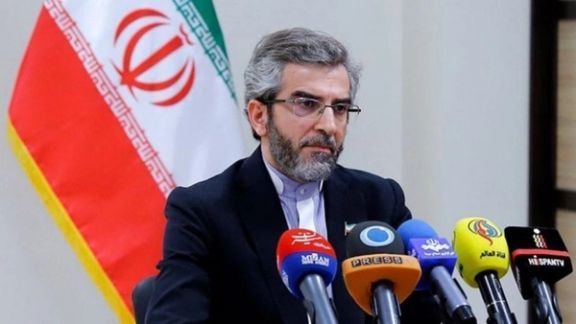
Iran’s top nuclear negotiator says Tehran will give the US another chance to show good faith while a lawmaker suggested that nuclear talks will soon resume.
“We shared our proposed ideas, both on substance and form, to pave the way for a swift conclusion of Vienna negotiations which were aimed at fixing the damaging complicated situation caused by the US unilateral and unlawful withdrawal,” Ali Bagheri-Kani tweeted Sunday afternoon, adding that Iran is working closely with its JCPOA partners, in particular the European coordinator of the talks, Josep Borrel, “to give another chance to the US to demonstrate good faith and act responsibly.”
“We stand ready to conclude the negotiations in a short order, should the other side be ready to do the same,” he added.
In in an essay in the Financial Times Tuesday, Borrel who is the EU high representative for foreign affairs and security policy said he has proposed a new draft text to revive the deal, and that he has “concluded that the space for additional significant compromises has been exhausted”.
"I have now put on the table a text that addresses, in precise detail, the sanctions lifting as well as the nuclear steps needed to restore the JCPOA," he wrote.
Yaghoub Rezazadeh, member of the presiding board of the National Security and Foreign Policy Committee of the Parliament told the Iranian Students News Agency (ISNA) earlier Sunday that a new round of nuclear talks with world powers will begin in Vienna, possibly soon, “given the efforts of the European partners” in the deal to revive the 2015 agreement, known officially as the Joint Comprehensive Plan of Action (JCPOA).
According to Rezazadeh, the members of the committee have held several meetings with Bagheri-Kani in the past few days and although Iran has offered to host the new talks, they will probably be held in Vienna.
Rezazadeh’s comments were the first time an Iranian official has spoken about the possibility of a new round of talks.
US State Department spokesman Ned Price told reporters during the week that Washington was reviewing the "draft understanding" Borrell shared with Iran and other parties to the 2015 deal and would respond directly to the EU.
Borrell also said there is a risk of a dangerous nuclear crisis, set against the prospect of increased isolation for Iran and its people, if the deal is rejected.
On Saturday two Telegram channels with links to IRGC suggested that Iran may build nuclear warheads “in the shortest possible time” if attacked by the US or Israel.
Israeli has repeatedly threatened in recent months to use all means at its disposal to prevent Iran from becoming a nuclear threat and has said its armed forces are preparing for action if necessary. The US and Israel agreed in July to take a joint stance against Iran's nuclear program and involvement in regional conflicts and said they would work together to prevent Tehran from obtaining a nuclear weapon.
Iran has now enriched enough uranium to 60 percent that if further enriched to 90 percent, the fissile material will be sufficient for a nuclear bomb within a few weeks.
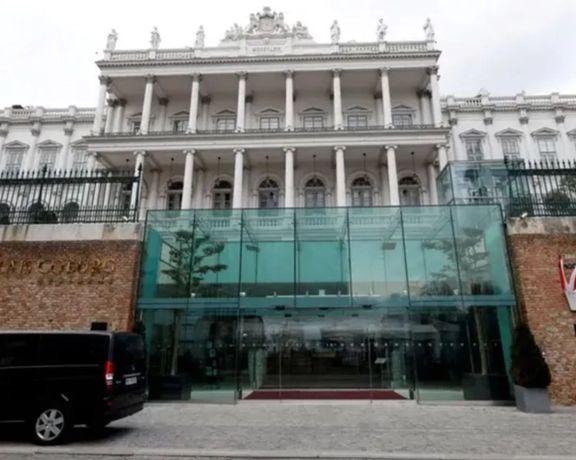
An Iranian lawmaker has said the talks to revive the 2015 nuclear deal, known as the JCPOA, will resume probably in Vienna in the coming days.
Yaghoub Rezazadeh, a member of the parliament's National Security and Foreign Policy Committee, said on Sunday that the decision has been taken thanks to the latest efforts of the European parties to reach a conclusion about the negotiations.
Rezazadeh added that the Islamic Republic had proposed that the next round would be held in Iran, but the final location of the negotiations will be determined following the agreement by the parties.
He said during the past few days the members of the committee held several meetings with Ali Bagheri-Kani, the head of Tehran’s negotiating team.
Moreover, Ali Bagheri-Kani tweeted on Sunday that “We shared our proposed ideas, both on substance and form, to pave the way for a swift conclusion of Vienna negotiations which were aimed at fixing the damaging complicated situation caused by the US unilateral and unlawful withdrawal.”
He added that Tehran works closely with the JCPOA partners, in particular with the EU coordinator of the talks “to give another chance to the US to demonstrate good faith and act responsibly. As Iran, we stand ready to conclude the negotiations in a short order, should the other side be ready to do the same.”
State Department spokesman Ned Price said on July 26 that the US was mulling European Union’s proposals over Iran’s nuclear program. EU foreign policy chief Josep Borrell recently produced new ideas to bridge differences between the United States and Iran and allow both to return to the agreement.
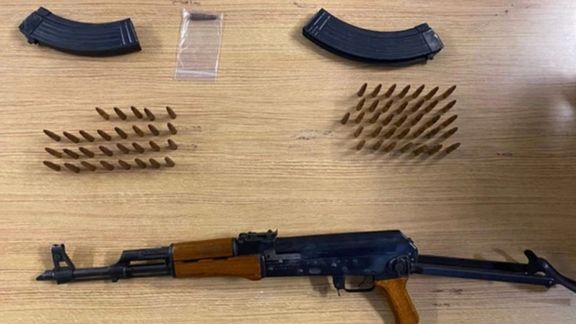
A man arrested in Brooklyn with an AK-47 gun near the home of an Iranian activist has told police he went there “looking for someone,” Iran International has learned.
The 23-year-old Khalid Mehdiyev, reportedly from the Republic of Azerbaijan, was observed loitering outside the home of Masih Alinejad, a well-known Iranian journalist and women’s rights activist on July 27 and 28.
A sealed complaint filed by a Federal Bureau of Investigation (FBI) agent at the Southern District of New York on July 29 and seen by Iran International says that the suspect was loitering outside a Brooklyn home, without naming Alinejad, and even tried to enter the residence and looked through the windows. Other reliable information received confirms that the incident happened at Alinejad’s address.
On July 28, as the man left the location after sitting in a Subaru SUV for hours and walking around the building, he was stopped by New York City police (NYPD) for a traffic violation.
The complaint filed does not say if the NYPD was tipped off by federal agents about the vehicle, or the traffic stop was a coincidence.
As the man was detained at a NYPD precinct and questioned, police found a Chinese-made AK-47 assault rifle in a suitcase on the back seat of the car and $1,100 in cash. Mehdiyev first denied that the suitcase and the gun were his, but then changed his story and admitted that the weapon was his, and he was “in Brooklyn because he was looking for someone.”

“At that point, MEHDIYEV invoked his right to counsel and stated that he would not discuss the matter further at that time,” the complaint filed at court says.
The gun with a round in the chamber, two magazines with more than 60 rounds, had its serial number erased. The police also found two other license plates in the car with different numbers and issued by different states, than the Illinois plate on the vehicle.
Alinejad, who campaigns against mandatory hijab and other rights issues was the target of an international kidnapping plot orchestrated by Iran’s intelligence network last year. She has a considerable following in Iran especially among women with over 7 million followers on Instagram and 373,000 on Twitter.
The clerical regime in Iran does not hide its disdain about the female activist and has banned women from sharing any information or videos with her. State-controlled media routinely castigate her and use labels such as CIA agent to discredit her activism.
Her most recent campaign that elicited the wrath of the Islamic Republic was a call to women to in Iran remove their headscarves on July 12. Many women did and sent their videos to Alinejad or shared it on social media. Regime officials reacted by saying that hijab was their “red line”.
At this point it is not confirmed that Mehdiyev’s target was Alinejad, or if he has any links with Iranian spy networks. In the coming days more revelations might follow. Alinejad also has not yet publicly reacted to the news.
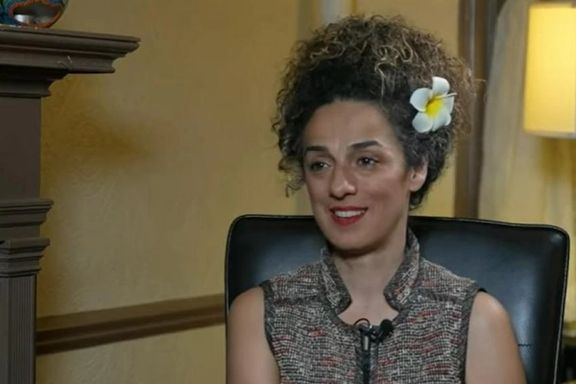
A man armed with a loaded AK-47 was arrested Thursday outside the Brooklyn home of Iranian dissident journalist and women’s rights activist Masih Alinejad.
According to a report by the New York Post on Sunday, the federal complaint said the man named Khalid Mehdiyev, 23, was found with the assault rifle, multiple high-capacity magazines and additional rounds of ammunition and a suitcase full of cash as well as two other different license plates when he was arrested after lurking in the area for two days.
Feds said they watched Mehdiyev sitting in a gray Subaru Forester SUV with an Illinois license plate for several hours on Wednesday and Thursday, adding that he ordered food to his car and looked inside of the windows and attempted to open the front door of the residence.
Mehdiyev said he was looking for a new place to live in the Brooklyn neighborhood and tried to open the front door of the residence so he could ask if he could rent a room. Later, he confessed that he had been in Brooklyn “because he was looking for someone,” according to the complaint.
The charging documents made no explicit connection between Mehdiyev and Alinejad but the activist was the target of an international kidnapping plot orchestrated by Iran’s intelligence network last year.
After dozens of Iranian women unveiled in public and sent their videos to the anti-hijab activist in New York, Iran said earlier in the month that sending her footage can lead to up to 10 years in jail.
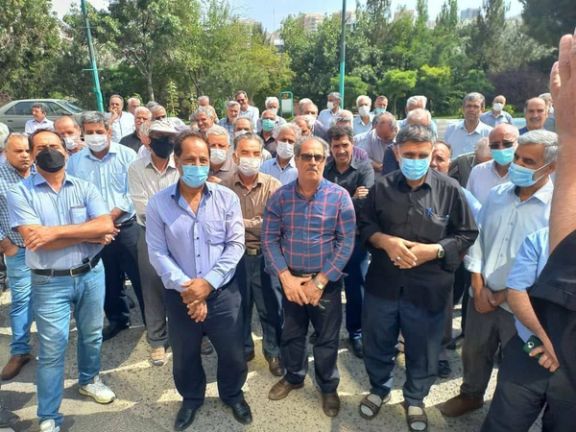
Several people have been arrested during the latest round of nationwide demonstrations by Iranian retirees who are protesting against the government’s meager pension increase.
Videos and photos shared on social media on Sunday showed pensioners protesting in numerous cities including Tehran, Rasht, Tabriz, Orumiyeh (Urmia), Kermanshah, Sanandaj and Bojnourd.
According to the telegram channel of the Free Union of Iranian Workers, several workers of the National Telecommunication Company were arrested during their rally in capital Tehran.
In 2009, Mobin Trust Consortium – whose main shareholders are the Cooperative Foundation of the Revolutionary Guards and the Executive Headquarters of Imam's Imam Khomeini's Order (Setad), bought 50 percent of the shares in the National Telecommunication Company from the government in a controversial acquisition.
Protesters chanted slogans against the government’s policy of spending huge amounts of money to garner support among the Lebanese and Palestinians -- especially in Gaza -- but do not increase the retirees’ payments enough amid a 55-percent inflation rate in Iran.
Similar to previous rounds of protests, which have become more frequent, retireess called on the government to increase pensions by 38 percent, as stipulated by the Supreme Labor Council. They are demanding pension increases more on par with rising prices of essential foods.
With food prices rising faster after four years of United States’ ‘maximum pressure’ sanctions, Iranian workers and retirees have been holding regular protests or strikes to demand higher salaries. Last month, Iran’s currency fell to a historic low of 333,000 rials to the US dollar in June.